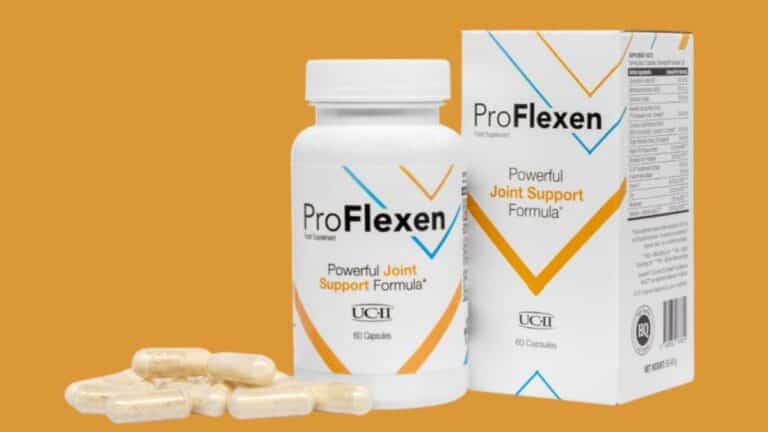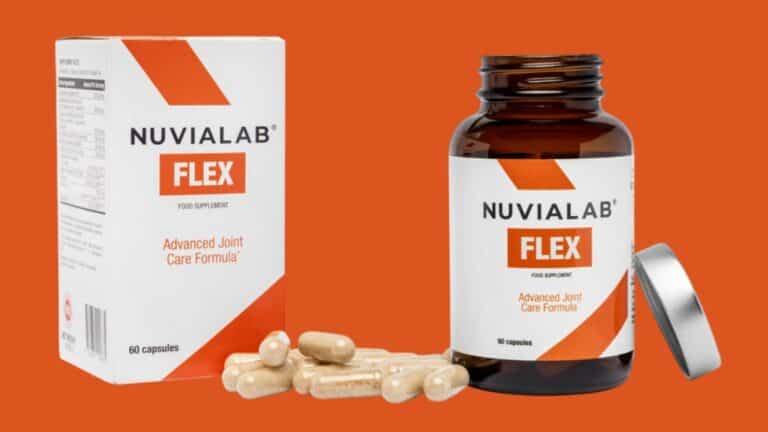Stiff, achy joints can make everyday movements feel like a challenge, turning simple tasks into painful obstacles. If arthritis is making your knees creak and your fingers stiff, you’re not alone. Millions of people deal with joint discomfort daily, searching for ways to ease the pain and regain mobility. That’s where joint health supplements for arthritis come in—offering a natural way to support cartilage, reduce inflammation, and keep joints moving smoothly.
From glucosamine and chondroitin to turmeric and omega-3 fatty acids, there’s a variety of supplements that claim to promote joint health. But do they really work? And which ones are worth trying? Let’s dive into the science behind these supplements, uncover the most effective options, and explore how they can fit into your daily routine for maximum relief.
Understanding Joint Health Supplements
Importance of Joint Health Supplements
Got joints that creak like an old door? You’re not alone. Joint health supplements might just be the WD-40 you need. These magic little helpers can ease arthritis symptoms, cut down on the, “ouch!” moments, and help you move like your joints aren’t from the Stone Age.
Glucosamine is the superstar of the joint supplement world. This stuff acts like a bouncer for your bones, keeping cartilage break-ins at bay and helping you move like you actually belong on the dance floor. Then there’s turmeric’s main squeeze, curcumin—it fights off inflammation like a hot curry in the face of osteoarthritis and rheumatoid arthritis (WebMD).
Ever heard of Omega-3 fatty acids? Yeah, fish have been hoarding this secret weapon for too long. This oily goodness helps keep inflammation under control, especially in rheumatoid arthritis, so you can give irritation and stiffness a one-two punch.
| Supplement | Benefits |
|---|---|
| Glucosamine | Kicks pain to the curb, shields cartilage, boosts flexibility (WebMD) |
| Turmeric | Chills inflammation, makes osteoarthritis feel lonely (WebMD) |
| Omega-3 | Puts inflammation on timeout, smooths arthritis edges (WebMD) |
Add these to your routine and say, “Hello, knees! Meet your new best friends.” Want more on how to keep those joints happy? Check out effective joint health supplements.
Factors to Consider Before Taking
Before you throw these into your shopping cart, do a little homework. Here’s how to not end up making a mistake with your supplements:
- Talk with the Doc: Can’t stress this enough—chat with your healthcare guru. There’s nothing like getting advice from someone with a white coat and more than a Google MD.
- Allergy Alert: Keep an eye on those ingredients. Some like glucosamine can sneak in shellfish and surprise you.
- Side Quirks: Know what might come your way—no one enjoys unexpected bloating or more bathroom visits. What’s worse, glucosamine has been known to freak out folks with asthma or glaucoma.
- Your Health, Your Rules: Past and, ayi, present conditions matter. Omega-3s, for example, might not play nice with blood thinners.
- The Purity Police: Demand the good stuff. Opt for high-quality, garbage-free supplements. Snoop through joint health supplements organic to know more.
Looking for even more tailored supplement advice, like the kind that’s senior-approved or gluten-free? Sneak a peek at our expanded info on joint health supplements to ensure you’ve got a supplement stack that keeps you spry and arthritis at bay.
Glucosamine and Its Benefits
Alright, let’s chat about glucosamine! It’s a superstar when it comes to giving arthritis symptoms a good kick and is one of the top-notch helpers for your joints. Here, we’re gonna break down how glucosamine sulfate works, while also sprinkling in a little heads-up about any annoying side effects.
Efficacy of Glucosamine Sulfate
Glucosamine sulfate’s like a trusty sidekick, often called upon by folks battling osteoarthritis and looking to ease the pain. Research hasn’t always painted a consistent picture, but plenty suggests it’s a win, especially if you can’t handle those NSAIDs that make your tummy grumble (Mayo Clinic).
Back in 2018, a big review took a magnifying glass to 29 studies with 6,120 knee osteoarthritis warriors. The verdict? A clear thumbs-up to this joint hero! It scored major points for pain relief, and yes, it worked even better when glucosamine wasn’t mixed with chondroitin.
| Study Look-See | 29 deep dives, 6,120 individuals, relief landed when glucosamine went solo |
Glucosamine ain’t just about short-term good vibes; it might even slow down osteoarthritis’ slow march. A cool trial discovered it could ease the road for postmenopausal gals with knee strife, hanging its coat on two solid 3-year studies (WebMD).
Side Effects and Safety Concerns
Now, let’s keep it real – glucosamine sulfate’s mostly safe, but watch out for some tummy twisters. Yeah, a few people deal with tiny hassles like feeling queasy, dealing with a case of the potty sprints, not going at all for a bit, or feeling fire in the belly.
| Watch-Out List | Quick Dish on the Detail |
|---|---|
| Nausea | Stomach doing flips |
| Diarrhea | Runnin’ to the loo |
| Constipation | That “you’re not going anywhere” feeling |
| Heartburn | Fire alarm in your chest |
Oh, and if you’re allergic to shellfish, heads up – many glucosamine options come from these critters. Go for a veggie option to dodge those allergy grenades.
Plus, glucosamine might not play nice with some meds, so it’s smart to get your doc’s stamp of approval before tossing it into your daily mix.
For the full scoop on playing it safe and dodging drug dances, check out our handy joint health supplement tips.
By getting the lowdown on glucosamine sulfate’s ups and downs, you’re on track to decide if this is the friend you need in your arthritis battle. Peek at our top joint health supplement picks to craft your game plan for conquering joint woes.
Exploring Additional Supplements
When diving into the world of joint health, you’ll find a bunch of supplements that might ease arthritis symptoms. Let’s dig into the buzz around turmeric with curcumin, omega-3 fatty acids, and a few other goodies.
Turmeric and Curcumin
Turmeric isn’t just a kitchen spice—it’s got some serious anti-swelling powers thanks to curcumin. Some research even suggests it might beat out certain anti-inflammatory meds for joint pain relief, especially in osteoarthritis and rheumatoid arthritis patients.
A recent review from 2021 checked out ten studies and found knee pain noticeably improved in those taking turmeric or curcumin compared to folks getting a fake pill.
| Supplement | Recommended Dosage | Benefits |
|---|---|---|
| Turmeric/Curcumin | 500-2,000 mg per day | Tackles inflammation, eases joint pain |
| Omega-3 Fatty Acids | 1,100-1,600 mg per day | Manages inflammation, reduces stiffness |
| Collagen Hydrolysate | Varies | Supports joint structure, eases pain |
| Glucosamine | 1,500 mg per day | Keeps cartilage healthy, relieves pain |
| Chondroitin | 800-1,200 mg per day | Eases pain, helps joint movement |
Omega-3 Fatty Acids
Those omega-3s found in fish oil are a big deal for controlling body inflammation. For folks grappling with rheumatoid arthritis, these fats help reduce pain and improve stiff joints.
Evidence backs up using fish oil for treating arthritis, suggesting guys take 1,600 mg and gals 1,100 mg daily (Healthline). Chat with your doctor to nail down the best dose for you.
Other Effective Supplements
Beyond turmeric, curcumin, and fish oils, a smattering of other supplements might give joint health a boost and ease arthritis troubles.
- Collagen Hydrolysate: Bolsters joint structure and eases pain for various arthritis types.
- Passion Fruit Peel Extract: Packs a punch with its anti-inflammatory powers, cutting down on arthritis pain.
- Boswellia Serrata: Famous for strong anti-inflammatory effects, it can improve how well your joints work.
- MSM (Methylsulfonylmethane): Lessens swelling and pain, supporting overall joint health.
These supplements are mix-and-match friendly, so you can find your perfect combo. Just be sure to touch base with your doc before switching up your routine. Check out our pieces on top joint health supplements and natural joint health supplements for more.
Using these additional supplements could be your ticket to improving joint health and relief from arthritis aches. Discover your go-to joint health supplements and keep your joints feeling tip-top.
Impact of Supplements on Arthritis
If arthritis has you feeling stiff and sore, and finding a way to ease the pain feels like a full-time job, you’re not alone. Many folks are turning to goodies like joint health supplements to get some relief. So, let’s chat about how these little warriors might help with arthritis, especially when it comes to conquering pain and stiffness.
Studies on Pain Reduction
Researchers have poked and prodded into how well joint supplements work to lessen arthritis pain. Here’s what they found when they were in their science zone:
- Collagen hydrolysate, passion fruit peel extract, and curcumin were found to kick some serious pain butt in the short term for folks dealing with osteoarthritis in their hands, hips, or knees (PubMed).
- Green-lipped mussel extract and undenatured type II collagen shone bright with medium-term pain relief for those with osteoarthritis.
- Glucosamine and chondroitin didn’t really rock the boat in pain management, despite being popular names you’ve surely heard tossed around.
| Supplement | Pain Reduction Effectiveness |
|---|---|
| Collagen Hydrolysate | Stands out in the Short Term |
| Passion Fruit Peel Extract | Stands out in the Short Term |
| Curcumin | Stands out in the Short Term |
| Green-lipped Mussel Extract | Notable in the Medium Term |
| Undenatured Type II Collagen | Notable in the Medium Term |
| Glucosamine | Meh, not much effect |
| Chondroitin | Meh, not much effect |
These insights point out how important it is to pick the right supplement that matches what your body is asking for.
Effectiveness on Joint Stiffness
For those of us dealing with the creaky, achy joys of arthritis, stiffness in the joints is also a big deal. Some supplements might help shake things up for you here too, but they’re not all created equal.
- Collagen and curcumin showed up to the party, reducing the stiffness and making movements smoother for patients with osteoarthritis, particularly in the hands, hips, or knees (PubMed).
- On the flip side, glucosamine and chondroitin took a backseat with less impact on easing stiffness, even though you see them all over the shelves (PubMed).
| Supplement | Effectiveness on Joint Stiffness |
|---|---|
| Collagen Hydrolysate | Makes a Difference |
| Curcumin | Makes a Difference |
| Glucosamine | Not much help |
| Chondroitin | Not much help |
To get the best out of your supplements, pair them with other treatments and loop in your healthcare expert. You can also check out our sections on the top joint health supplements and effective joint health supplements.
When considering supplements for arthritis, keep your expectations in check. They can indeed bring a good chunk of relief, but results tend to play peekaboo, and sometimes the scientific evidence isn’t rock solid. Always blend supplements with traditional treatments to get the best shot at managing those pesky arthritis symptoms.
Recommendations and Guidelines
Thinking about adding joint health supplements to your daily routine? They might just help with those pesky arthritis symptoms. But before jumping all in, here’s a friendly heads-up on some recommendations and guidelines that’ll keep you on the safe side.
Consultation with Healthcare Providers
Chatting with your doc before trying out any new supplement is a must. They’ll steer you clear of any unwanted run-ins with meds you might already be on. Take glucosamine and chondroitin, for instance. Sure, they’re typically safe (Harvard Health Publishing), but who wants to overlook those sneaky side effects? Chondroitin, for instance, can mess with blood thinners like warfarin, upping the bleeding risk. Yikes!
So, always peek at the product labels like a detective. Especially the glucosamine forms. The backing for N-acetyl glucosamine against osteoarthritis? Barely there, according to the Mayo Clinic.
| Supplement | Potential Interaction |
|---|---|
| Glucosamine | Varies with form |
| Chondroitin | Blood thinners like warfarin |
No one knows your health better than you and your healthcare provider, so get that personalized advice tailored just for you.
Usage Alongside Traditional Treatments
Want to double down on relief? Mixing joint health supplements for arthritis with old-school treatments is the way to go. Tons of studies say supplements like glucosamine, chondroitin, omega-3, SAM-e, and curcumin do wonders for soothing arthritis. But, pair them with your regular meds to see the magic happen.
This brings us back to a 2019 study, highlighting chondroitin’s impressive pain-killing skills in osteoarthritis cases, mostly when going for the good stuff – pharmaceutical-grade versions (NCCIH). But remember, it’s a sidekick, not a superhero. You wouldn’t want to ditch your existing plan for it.
For stellar results, weave these supplements into a wider arthritis-fighting strategy that spans meds, exercises, and a bit of lifestyle tuning. Need more advice? Lean on your healthcare guru to piece together a killer treatment plan tailored just for your joints. Visit our info-packed page on effective joint health supplements for even more learnings.
| Supplement | Best Used With |
|---|---|
| Glucosamine | Traditional treatments |
| Chondroitin | Conventional medications |
| Omega-3 | Physical therapy |
With the right balance of professional advice and a pinch of supplements sprinkled on top of your existing regimen, arthritis pain doesn’t stand a chance, and you’ll be on your way to boosting your joint health.
Considerations and Precautions
Potential Bumps with Meds
Let’s get real about joint health supplements for arthritis—you gotta watch out for those sneaky interactions with your meds. Take glucosamine, for example. It’s mostly harmless, but if you’re on blood thinners like warfarin (Coumadin), brace yourself for some potential clashes (WebMD).
| What You’re Taking | What’s the Deal with Joint Supplements? |
|---|---|
| Blood Thinners | Might up your bleeding risk (e.g., Glucosamine and Warfarin) |
| Diabetes Meds | Could mess with your blood sugar control (WebMD) |
Chat with your doc before diving into the world of supplements, especially if you’re dealing with diabetes or taking meds that juggle your blood sugar. And oh, if shellfish makes you break out in hives or you’ve got glaucoma, check in with your doctor before popping glucosamine pills to skip any nasty surprises.
Keeping It Real with Expectations
Joint health helpers like glucosamine and chondroitin are pretty safe, but let’s not pretend they’re magic beans. The jury is out with mixed reviews—some say they help a bit, others shrug them off. So, keeping those expectations grounded is key.
Doctors generally suggest you do the following when thinking about these supplements:
- Give It Some Time: If your joints aren’t doing a happy dance after a couple of months, might be time to call it quits.
- Doctor’s Orders: Always get your healthcare provider’s take before going supplement crazy. They’ll help you weigh the good and the bad.
Remember, these supplements aren’t babysat by the FDA, which means they might not always have exactly what’s on the label or could have some unwelcome extras (Harvard Health Publishing).
For the best results, maybe mix these supplements with your regular arthritis treatment and have a good chat with your doctor about the best way to tackle your aches. Want more on this? Dive into our articles on joint health supplements, effective joint health supplements, and top joint health supplements. Your joints might just thank you!
Final Thoughts
While arthritis can be a frustrating and painful condition, joint health supplements for arthritis offer a promising way to manage symptoms and improve mobility. Glucosamine, chondroitin, turmeric, and omega-3 fatty acids have been widely studied for their ability to reduce inflammation, protect cartilage, and support overall joint health. Although results can vary from person to person, many individuals find relief when incorporating these supplements into their daily routine.
That said, supplements aren’t a magic cure, and they work best when combined with a healthy lifestyle, proper diet, and regular movement. Consulting with a healthcare professional before starting any supplement is always a good idea, especially if you have pre-existing conditions or take other medications. By choosing high-quality supplements and taking a comprehensive approach to joint care, you can give your body the support it needs to stay strong, flexible, and pain-free.
Frequently Asked Questions
What are the best joint health supplements for arthritis?
Some of the most effective joint health supplements for arthritis include glucosamine, chondroitin, turmeric (curcumin), omega-3 fatty acids, collagen hydrolysate, and MSM (methylsulfonylmethane). These supplements have been studied for their potential to reduce inflammation, support cartilage health, and relieve pain.
How long does it take for joint health supplements to work?
The effectiveness of supplements can vary, but most people start noticing results within 4 to 12 weeks of consistent use. Some supplements, like turmeric and omega-3s, may provide faster anti-inflammatory effects, while glucosamine and chondroitin may take longer to show benefits.
Can I take multiple joint health supplements at once?
Yes, many people combine different supplements, such as glucosamine with chondroitin or turmeric with omega-3 fatty acids, for added benefits. However, it’s important to consult a doctor to ensure there are no interactions with medications or pre-existing health conditions.
Are joint health supplements safe for long-term use?
Most joint health supplements for arthritis are considered safe for long-term use, especially when taken at recommended dosages. However, some, like glucosamine, may cause mild digestive issues, and omega-3s can thin the blood, so it’s best to monitor for side effects and consult a healthcare provider regularly.
Do joint supplements work better than prescription medications?
While some people find relief with supplements alone, prescription medications like NSAIDs (nonsteroidal anti-inflammatory drugs) or corticosteroids may be more effective for severe arthritis pain. Supplements are often best used as part of a comprehensive joint health plan, rather than a complete replacement for medical treatments.
What should I look for when buying joint health supplements?
When purchasing joint health supplements for arthritis, look for high-quality, third-party tested brands that contain clinically studied ingredients. Avoid products with unnecessary fillers, additives, or low concentrations of active ingredients.







